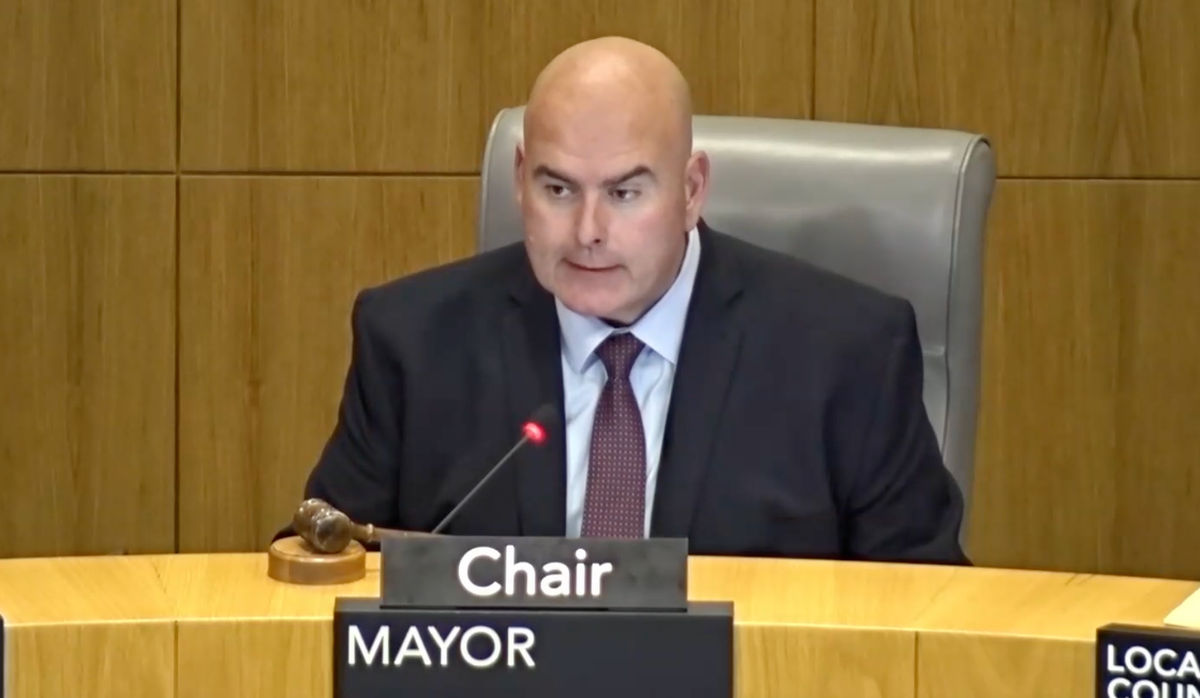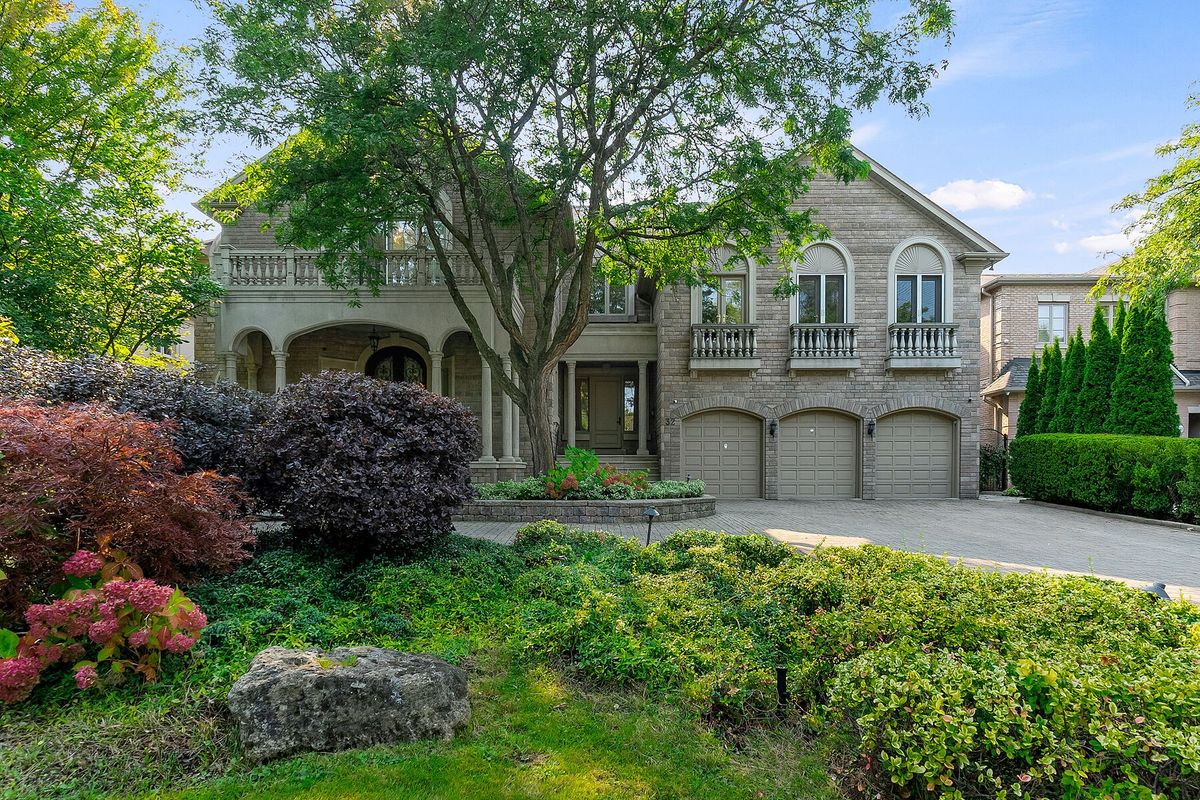Before 2020, the idea of spending millions of dollars to live in the far out suburbs of the GTA would have seemed preposterous to most homebuyers. Then the pandemic hit, the market shifted, and that became entirely commonplace.
Now as the market shifts again -- this time with demand declining and prices falling -- some buyers are experiencing overwhelming buyers' remorse and trying to back out of deals.
"It's the reverse FOMO," said mortgage broker Ron Butler. "It's FOGS: fear of getting screwed. When you start to hear conversations like the price of townhouses in Brampton is falling $15,000 a week, that's very exciting to people. That is extremely impactful. And when enough people hear it, it's frightening."
READ: Is Now the Time to Buy?
Unlike buyers who have had to renege on deals because of failed financing amid dropping home valuations, these buyers are backing out because they don't want to get stuck overpaying for a home they submitted an offer for a few months ago that, come closing time, is worth significantly less than what they agreed to pay.
"I read comments about it and they just start with 'I'm scared -- I don't want to close this transaction and instantly lose $180,000,'" Butler said. "Part of it is also sort of a culture we've developed where people think that you can get out of things. We hear a lot of consumer protection stuff."
This trend is largely being seen in outer GTA suburbs where prices are falling the most. The latest data from the Toronto Regional Real Estate Board revealed a drop in both the number of sales that took place in April -- down 41.2% year-over-year -- and the selling price. Detached houses in the 905 regions in particular saw a significant drop, with average prices falling more than $200,000 from February’s numbers. Semi-detached homes fell by $172,244, townhouses by $121,610, and condo apartments by $33,545.
Comparatively, detached home prices in Toronto fell a more modest $126,000 between February and April. Meanwhile the average price of semi-detached homes dropped by less than $5,000 and condo apartments, which make up an overwhelming majority of sales in Toronto, fell a mere $1,255.
"The apartments or condos downtown, and also very specific neighbourhoods in the GTA, they are all fine," Butler said. "All of the sort of outskirts and small cities are experiencing this right now."
A Tricky Legal Defence
For buyers who opt to renege on a deal, not only will they likely lose their deposit, but they risk an expensive and drawn out legal battle. If a seller, now having to re-list their home in a cooler market, is looking down the barrel of a hundreds of thousands of dollar loss, they can go after the buyer for the difference.
But for some desperate buyers feeling the full effects of this remorse, it's a risk they're willing to take. Legal fees for this type of case oftentimes near $100,00 so from the seller's perspective, pursuing such a case may not be worth it.
“You always have to factor in whether it’s really worth the extra effort to pursue litigation because it’s going to cost you a lot of money up front, you’re going to have to hire a litigation lawyer, pay a substantial retainer, and it’s going to take a lot of time,” real estate lawyer Daniel La Gamba told STOREYS. “I always tell clients that they have to be prepared for a very long battle, and is it really worth pursuing after paying all the legal fees and taking time off of work?”
For buyers who decide to pursue legal action, and can provide documentation proving they did everything in their power to mitigate any further losses, the courts do overwhelmingly side in their favour. But that doesn't stop reneging buyers from trying out a variety of legal defences to try to get out of the deal scot free, Butler says.
"There's a tendency for the buyer to try to use fake defences," Butler said. "One of the most common ones is that the survey is inaccurate, or that the house description in the listing was inaccurate, and therefore it's a violation. It invalidates the purchase agreement."
But having observed a number of such cases, Butler says this defence rarely works.
"Even in the face of those defences, judges say no," Butler said "You have a right to ask for survey and you didn't ask for it. You inspected the home. If you want to argue about the actual square footage, you had ample opportunity to when you were making the decision to buy. Again, I've been around a lot of these -- it's mainly just made up defences that don't work."
Michael Walsh, president and broker of record for Exclusively Buyers Inc, has similarly observed arguments of material differences to the property being used to try justify backing out of deals. One defence he has yet to see, but expects to in the near future as remorseful buyers search for more loopholes to justify backing out, is a failure on the part of an agent to adequately disclose dual agency -- where they've represented both the buyer and seller.
"The legal logic is sound in that if the dual agency has not been disclosed at all or adequately disclosed, then there's a fraud that's happened," Walsh said. "I think this is probably something that is going to be more prevalent. Buyers are just going to be scrambling to find a way out of deals."
According to the Real Estate Council of Ontario (RECO), dual agency is allowed, but agents "must explain how the services provided to the client will differ from a single representation situation, including any differences in the sharing of information." RECO also specifies that these disclosures must be made "at the earliest practical opportunity and before an offer to purchase is made." The brokerage is required to obtain written consent of all parties it's representing to prove this was done.
A Different Perspective is Needed
Peter Kiriazopoulos, a sales representative with Kompass Realty Group, says that rather than letting themselves become overwhelmed by remorse in the short term, buyers need to have more of a long term perspective and go through with the purchase if they're able.
"It sucks, but at the same time, you've got yourself into something, you signed on the dotted line, and it's something that you have to have to fulfil," Kiriazopoulos said. "For people who are buying for end use, and they bought and the property dropped 10 to 15%, well, your outlook shouldn't be six months, it should be five to 10 years. In 2017, we saw that it took about 18 to 24 months, but we bounced back."
Buyers backing out not only affects the two parties immediately involved in the deal, Kiriazopoulos says, but it creates a ripple effect throughout the market.
"It's not just about taking a deposit," Kiriazopoulos said. "It creates that cascading sort of domino effect where a buyer reneges and, well, that seller needs those funds, most likely to move on to the next property. So it causes a sort of chain reaction of clogging up the money in the market."





















